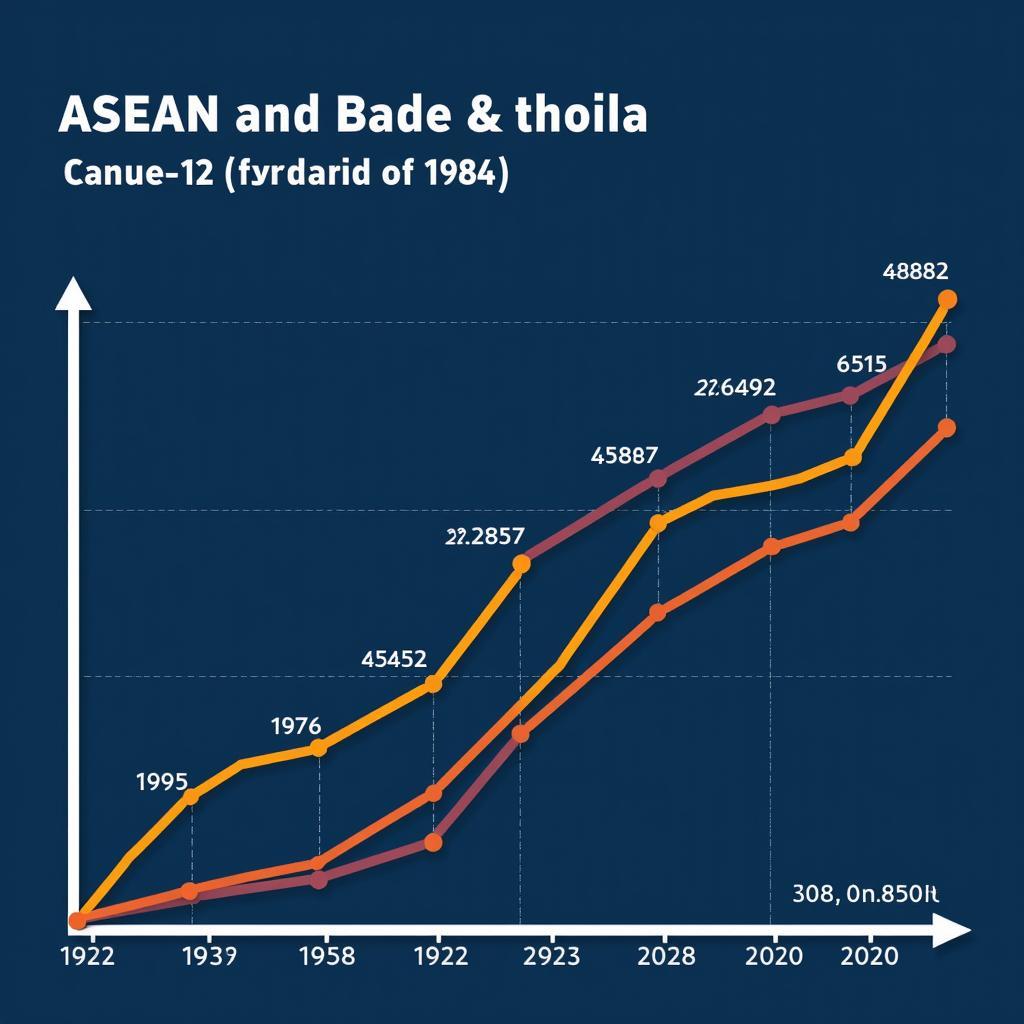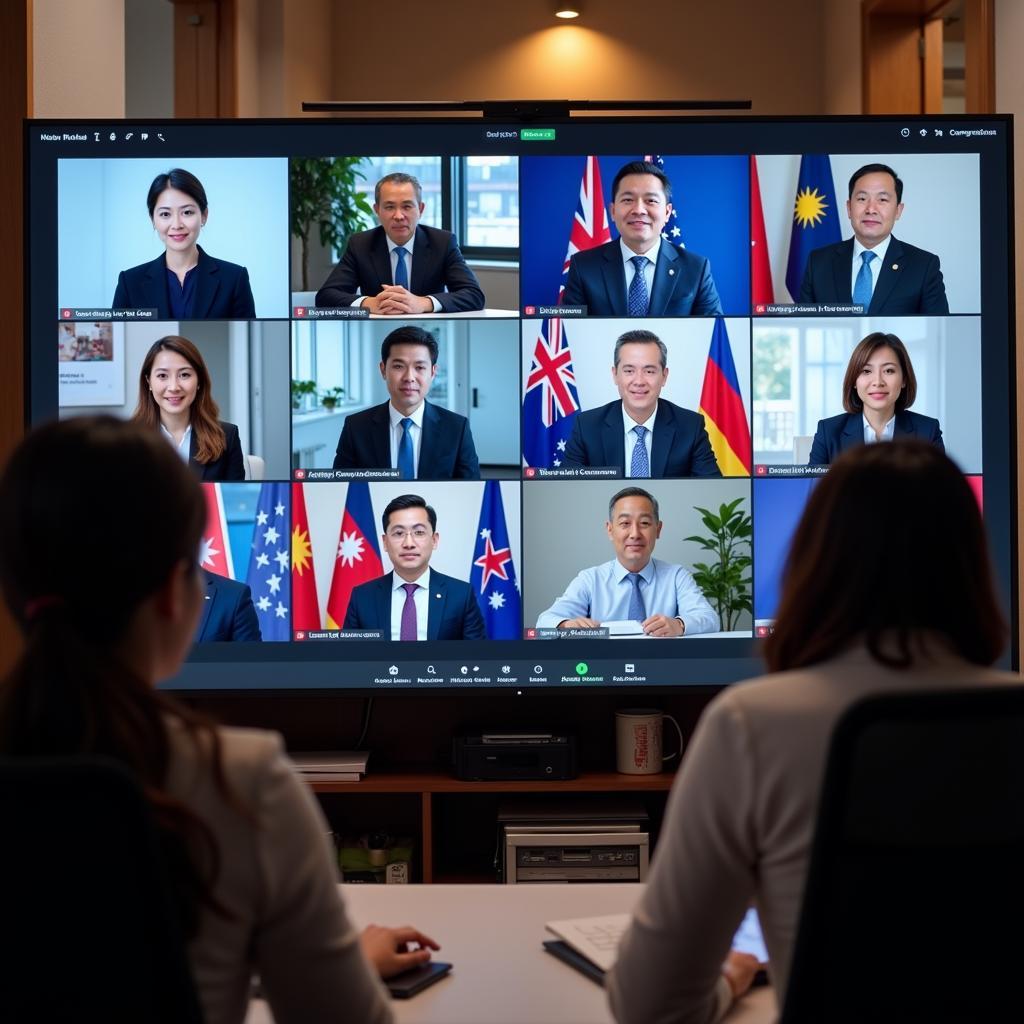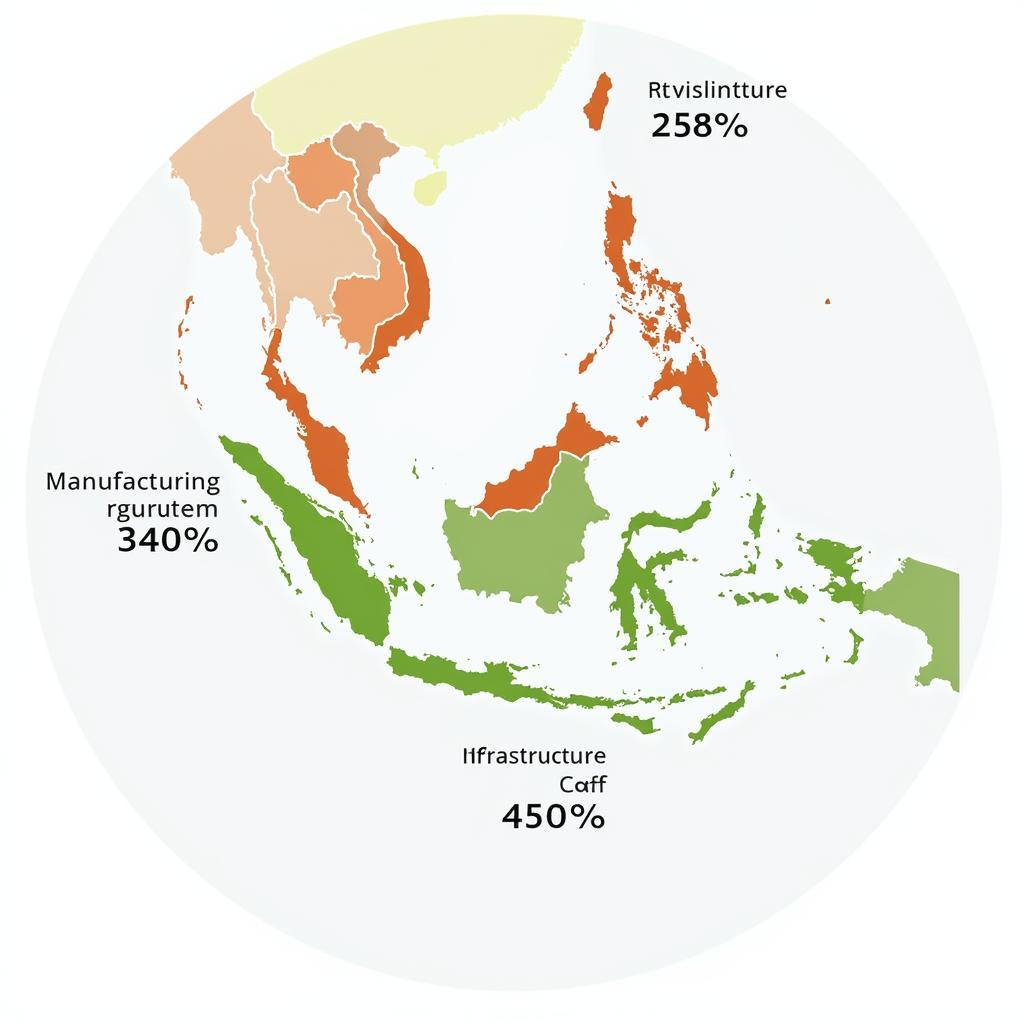Asean Australia Trade has been steadily growing for decades, forming a crucial economic partnership in the Indo-Pacific region. This article delves into the multifaceted relationship, exploring its evolution, key sectors, challenges, and future prospects.
Historical Context and Evolution of ASEAN-Australia Trade
Australia has enjoyed a long-standing relationship with Southeast Asia, with trade being a cornerstone of this connection. Formal economic ties between Australia and ASEAN were established in 1974 when Australia became the first dialogue partner of the regional bloc. Since then, the two regions have signed several agreements to boost trade and investment.
A significant milestone was the ASEAN-Australia-New Zealand Free Trade Agreement (AANZFTA), which entered into force in 2010. This agreement significantly liberalised trade in goods and services, fostering closer economic ties.
 ASEAN-Australia Trade Growth Over the Years
ASEAN-Australia Trade Growth Over the Years
Key Sectors Driving Bilateral Trade
ASEAN Australia trade encompasses a diverse range of sectors. Here are some of the key areas driving the economic partnership:
- Energy and Resources: Australia is a major exporter of energy resources such as coal and LNG, which are in high demand in Southeast Asia to fuel their growing economies.
- Agriculture and Food Security: Australia plays a crucial role in ensuring food security in Southeast Asia by exporting agricultural products like wheat, beef, and dairy.
- Education and Skills Development: Australia is a leading destination for higher education for ASEAN students. This exchange fosters knowledge transfer and people-to-people links.
- Tourism and Services: The tourism sector contributes significantly to both economies, with a steady flow of visitors traveling between the two regions.
Challenges and Opportunities
While ASEAN Australia trade relations are robust, some challenges remain. Addressing these issues is crucial to unlocking the full potential of the partnership:
- Non-Tariff Barriers: Technical barriers to trade and regulatory differences can hinder the flow of goods and services.
- Digital Economy Integration: As the digital economy expands, both regions need to collaborate to harness its full potential and ensure inclusive growth.
- Sustainable Development Goals: Aligning trade policies with sustainable development goals, including climate change mitigation, is vital for a resilient and future-proof partnership.
Looking Ahead: A Future of Shared Prosperity?
The future of ASEAN Australia trade appears bright. Both regions are committed to strengthening economic ties and exploring new areas of collaboration. The [ASEAN Australia Plan of Action] outlines several initiatives aimed at deepening economic engagement.
“The rise of the digital economy presents immense opportunities for ASEAN and Australia,” notes Dr. Jane Lee, a leading economist specializing in Southeast Asian trade. “Collaboration in areas like fintech and e-commerce can unlock significant economic growth and innovation.”
 ASEAN and Australia Collaborating in the Digital Economy
ASEAN and Australia Collaborating in the Digital Economy
Conclusion
ASEAN Australia trade is a vital pillar of the Indo-Pacific economic architecture. By addressing existing challenges and leveraging emerging opportunities, this partnership can reach new heights and contribute to a more prosperous and integrated region. As both regions continue to prioritize free trade and economic cooperation, the future of ASEAN Australia trade remains promising.
FAQ:
-
What is the significance of the AANZFTA? The AANZFTA is a free trade agreement that has significantly reduced tariffs and trade barriers between ASEAN, Australia, and New Zealand, boosting trade and investment flows.
-
What are the main exports from Australia to ASEAN? Australia’s main exports to ASEAN include energy resources like coal and LNG, agricultural products such as wheat and beef, and services in education and tourism.
-
How can I find more information about the [43rd ASEAN Summit]? Visit our dedicated page for the latest updates and insights on the upcoming summit.
Need support? Contact us at Phone Number: 0369020373, Email: [email protected] or visit us at Thôn Ngọc Liễn, Hiệp Hòa, Bắc Giang, Vietnam. We have a 24/7 customer service team.

